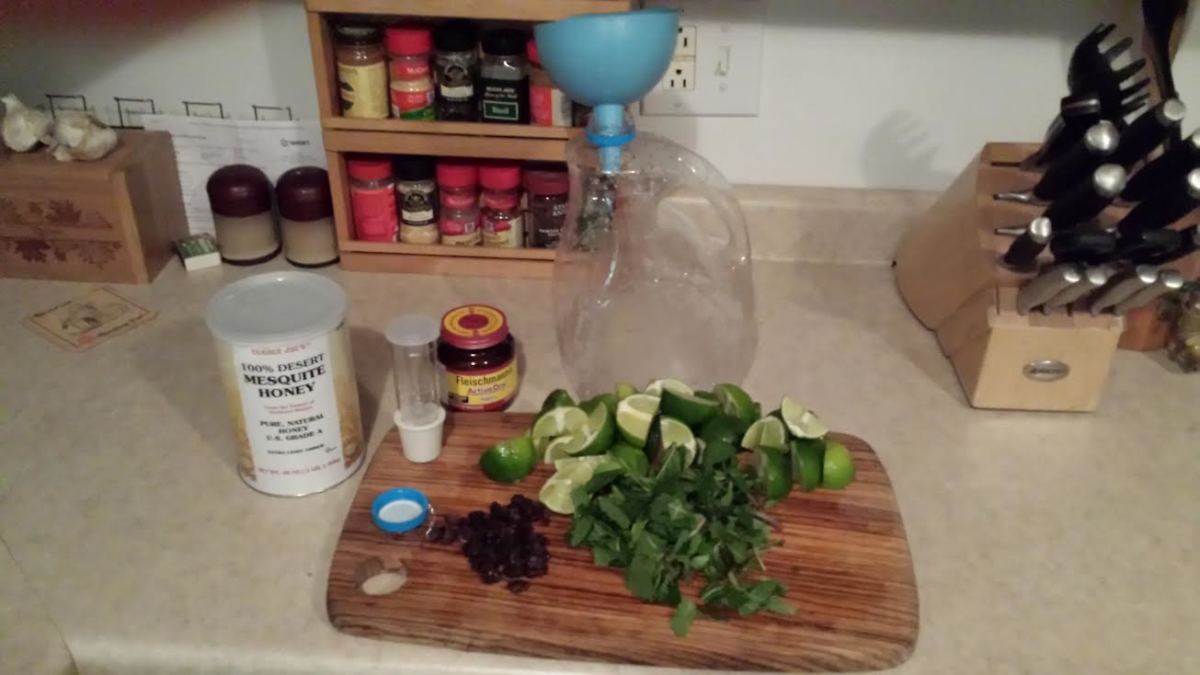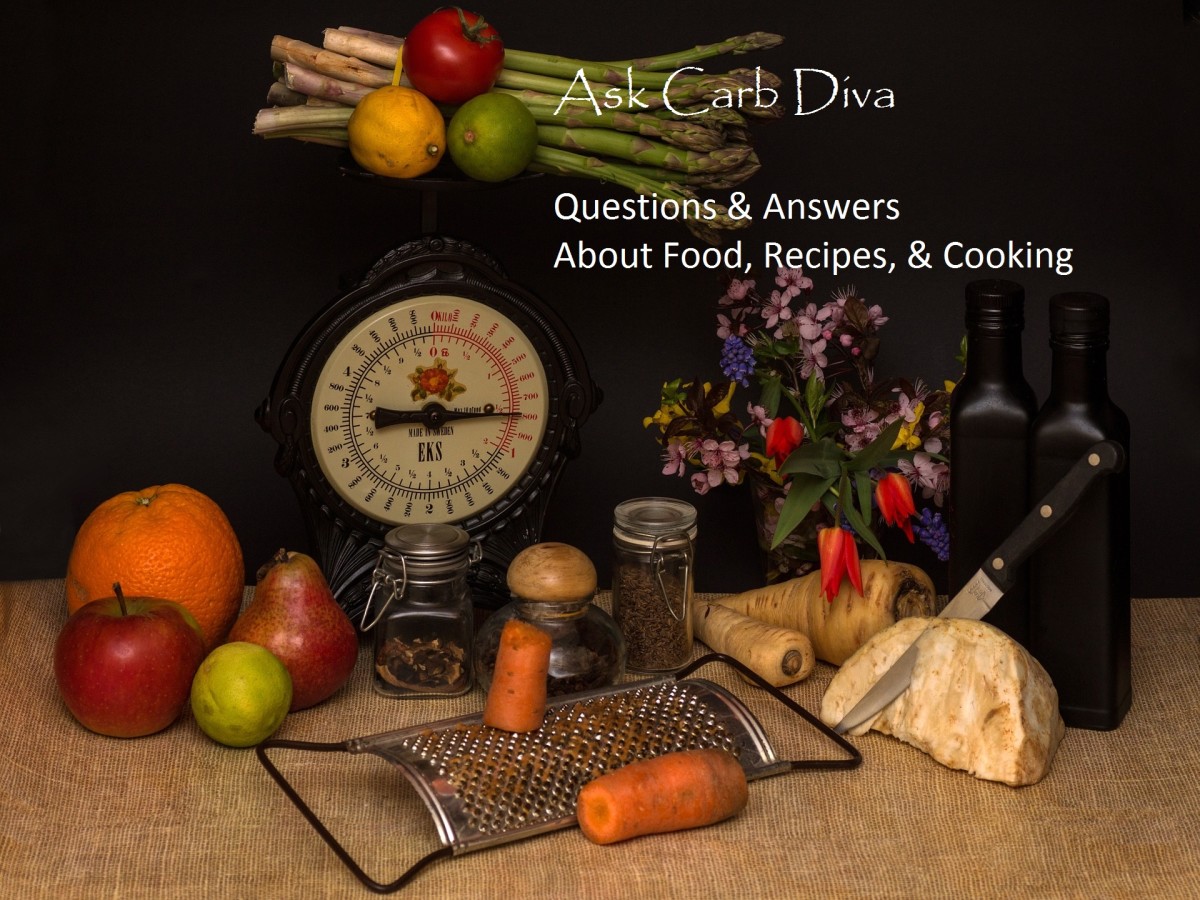A Reply to a Plagiarism Accusation
Text of New Hubber 'just kidding's' Request For Me
Why in the WORLD would you plagiarize someone else's work?!?!?!
Your root beer article thingy has the exact same wording as professor fankhauser's, and you didn't list him as a source!!! that's totally plagiarism!!!!!!!!!!!! I created an account on hub pages just so I could ask you that question, so I better get a good answer! I am a huge fan of fankhauser's work . also I posted a comment on the page.
asked by just kidding 29 hours ago
Just Kidding - Did You Bother to Read My Hub Before Making This Request?
March 19, 2011
Just Kidding - since you went to the trouble of opening an account on HubPages solely for the purpose of posting this question I will answer your question despite the fact that I previously posted a 1,329 word reply to the same accusation made by Dr. Frankhauser himself two years ago in the Comments section of my Hub entitled How to Brew Root Beer and Ginger Ale.
However, before continuing, I have a question of my own for you and that is, have you actually read my How to Brew Root Beer and Ginger Ale Hub as well as Dr. Frankhauser’s pages entitled Making Root Beer at Home and Making Ginger Ale At Home both of which appear on the website maintained by his university and to both of which I have links to in my Hub?
I Have Never Copied Other People's Work
I ask this question because I honestly doubt that you bothered to read any of the above mentioned pieces as, contrary to your accusation that my root beer article thingy has the exact same wording as professor fankhauser's, I did not use the exact same wording as Professor Frankhauser used on his site.
First, I have never copied and pasted works by others and then claimed them as my own and I never will do this as it is unethical and illegal.
Second, as I have explained to Dr. Frankhauser both in my reply to his comment on my Hub two years ago and in an earlier private email to him, I was not even aware of his web site until he included a link to it in the comments he first posted on my Hub during the last week of December 2007. (While I don’t mind criticism of my writing or of my positions on topics I write about, I do object to unfounded personal attacks on my character which is why I deleted Dr. Frankhauser’s December 2007 comments on the Hub.)
Following the receipt of Dr. Frankhauser’s 2007 accusation, I went so far as to copy and paste the content of my Hub into a Google Search bar and did a search to see if his website would come up. It didn’t, but I did find three other instances of my content having been copied and pasted into sites by others (one was in the form of a sidebar of the newspaper of a college in Washington State - the newspaper appeared both in print and online). None of them credited my Hub as their source and, to my knowledge, all have since been removed.
I did the same with the contents of Dr. Frankhauser’s articles and my Hub did not come up in the results (as I recall one duplicate copy of his site did show up but there was a statement indicating that he had given permission for that site to copy his page).
I say this because, not only was I unable to find his site using my content and vice versa, but HubPages now routinely uses more sophisticated software to search for duplicates and notifies us to either remove the content if we copied it or to contact the other site with a removal notice if they copied our Hub.
While many of my Hubs have been copied by others, Dr. Frankhauser’s article has never shown up as a duplicate of my Root Beer Hub.
Links to Information on Plagiarism & Copyright
- Plagiarism.org : Learning Center : Plagiarism Definitions, Tips on avoiding Plagiarism, Guidelines f
Welcome to Plagiarism.org, the online resource for people concerned with the growing problem of internet plagiarism. This site is designed to provide the latest information on online plagiarism and explain how Turnitin and iThenticate are now being u - U.S. Copyright Office - What Does Copyright Protect? (FAQ)
U.S. Copyright Office is an office of public record for copyright registration and deposit of copyright material. - Recipes and Copyright
U.S. Copyright Office explanation of recipes and copyright law. - Wikipedia talk:Plagiarism/Archive 4
WikiPedia Discussion of copyright, plagiarism and the Internet.
Copying, Paraphrasing & Plagiarism
I published the Hub How to Brew Root Beer and Ginger Ale on December 8, 2006 in response to a request on HubPages’ request page. I was unaware of Dr. Frankhauser’s website until a year later when accused me of plagiarizing his work.
Plagiarism can be the simple copying of a work by someone else or it can be the presenting of an original idea by someone else as one’s own. This latter instance is done by re-writing an article by someone else using different words.
This is known as paraphrasing. Paraphrasing can be used to present an original idea of another as one’s own or as a means of presenting the complete work of another as one’s own. Paraphrasing in this manner is also plagiarism.
Copying or even paraphrasing some facts or ideas from the work of someone else is often acceptable provided the writer identifies it as coming from the work of another and properly cites the author and source of that information.
Professor Frankhauser's Real Complaint
Professor Frankhauser’s real complaint appears to be the fact that he published the content on his website in 1996 and 2000 and that these were the first articles to be published on the web involving the fermentation process and the process for making yogurt, cheese and beverages such as root beer and ginger ale.
Given that the World Wide Web only came into existence in 1994, I have no reason to doubt his claim that he was the first to publish this information on the web.
What I disagree with is his claim that, by being the first to publish this information on the web, he and his sites are to be referenced as the source of the original work in these areas by all future articles on the web on these subjects.
If I am understanding him correctly, I am supposedly guilty of plagiarism not because of the wording of my Hub but because of where I choose to publish it. According to this theory, he would have had no problem with by Hub if I had published it by carving it on a stone, inscribing it on a clay tablet, writing it on a parchment scroll or writing it on paper and publishing it in a book or magazine.
As far a I know, it is content, and not the media on which the content is published, which determines whether there has been a plagiarism or copyright violation.
Professor Frankhauser on His Website Does Not Cite or Give Credit to His Sources
This being the case, then Professor Frankhauser can be accused of plagiarism as well because, as I have pointed out to him in both a January 1, 2008 private email response (to which he has never replied) to his original late December 2007 accusations and in my January 11, 2009 comment on my Hub (it is the 47th or 48th comment immediately below his posting of a day or so before) he does not cite any sources for the recipes and information he posted on his web site.
Nowhere on his web does Dr. Frankhauser cite or give credit to anyone for his information on fermentation.
He also does not give credit to any of the sources for his recipes for root beer and ginger ale although his recipes are nearly identical to the recipes and instructions found on the back of the boxes which contain the bottles of root beer and other flavoring concentrates used to make these beverages (regardless of the brand they are all nearly identical to each other and to what Dr. Frankhauser has written on his website).
Neither does he give credit to any of the recipes found in the numerous cookbooks published during the past century and a half all of which are nearly identical to what appears on the back of the boxes of concentrate, on Dr. Frankhauser’s website, in my Hub and, I suspect, in many introductory high school and college textbooks that contain a unit on fermentation.
In the Links module of my Hub I have links to eight recipes for ginger ale and root beer, all of which are to books in the vast online library of Google Books and all of which were published (one as long ago as 1866) prior to Dr. Frankhauser’s publishing of them on his website.
I Was Making Root Beer, Wine and Yogurt Almost Three Decades Before Dr. Frankhauser Put Up His Website
You asked why I didn’t list Dr. Frankhauser as my source. Well, what I have described above is one reason why.
Again, I was not only not aware of Dr. Frankhauser’s website until a year after I wrote and published that Hub but I already knew about how fermentation worked and had experience, beginning in the early 1970s when my younger brother and I began making yogurt, wine and root beer as a hobby.
This was years before the two Steves, Jobs and Wozniak, came out with the Apple computer in 1976, before IBM came out with their first Personal Computer in 1981 and before the World Wide Web came into existence in 1993, to say nothing of Dr. Frankhauser publishing his website in 1996.
Over the years I have also toured numerous wineries and breweries in the United States and Europe. These tours have always included talks by the guides on the fermentation and brewing process.
Finally, for the record, I did not claim credit for inventing the fermentation process or for devising the recipes for root beer and ginger ale as you implied in your request.
We Both Wrote about A Process That Has Been Discussed and Used for Thousands of Years
While I did not give credit to Dr. Frankhauser whose website was published some 6,000 years or more after the ancients first discovered and used fermentation, I did note in the first paragraph of my Hub that ancient peoples discovered the fermentation process (however, since they didn’t leave any records of the discovery, I was unable to cite a specific source for this discovery).
Further, in the second paragraph I state that root beer and similar so called small beers were brewed regularly by people in Elizabethan England (Elizabeth I reigned from 1558–1603) and Colonial America (this would have been before the Declaration of Independence in 1776).
I also mentioned in my 2009 comment on my Hub that since ancient times illiterate criminals in prison and soldiers in the ranks have been using the fermentation process to brew, usually forbidden, alcoholic beverages. One obviously does not need to read, let alone have a PhD in chemistry, to be able to explain this process.
As I stated in my lengthy 2009 reply to Dr. Frankhauser’s 2009 comment on my Hub (the 47th & 48th items in the Comments Module) neither of us presented any new or unique information or discoveries.
Instead we both wrote about a simple process that has been known and used by humans for 6,000 years or more. As to the recipes in question, they have been handed down for generations since at least the Middle Ages and are nothing more than instructions for combining 4 or 5 ingredients in more or less fixed proportions to produce a beverage. There is no unique way of presenting these recipes as one either describes them the same way as thousands of others have done or say nothing.
Despite His and His Student's Baseless Accusations, I Still Admire His Writing
I have no beef with Dr. Frankhauser and respect him as an authority in his field.
He did an excellent job of presenting information on the same topic as I wrote on and after learning of his site I not only included links to his pages describing the process of making root beer and ginger ale but also left in place the links he provided to his site in the 2009 comment he posted in the Comments section of my Hub.
In closing, I have to ask, if I had actually copied Dr. Frankhauser’s work why would I have been so stupid as to provide links to the evidence of my transgression?








